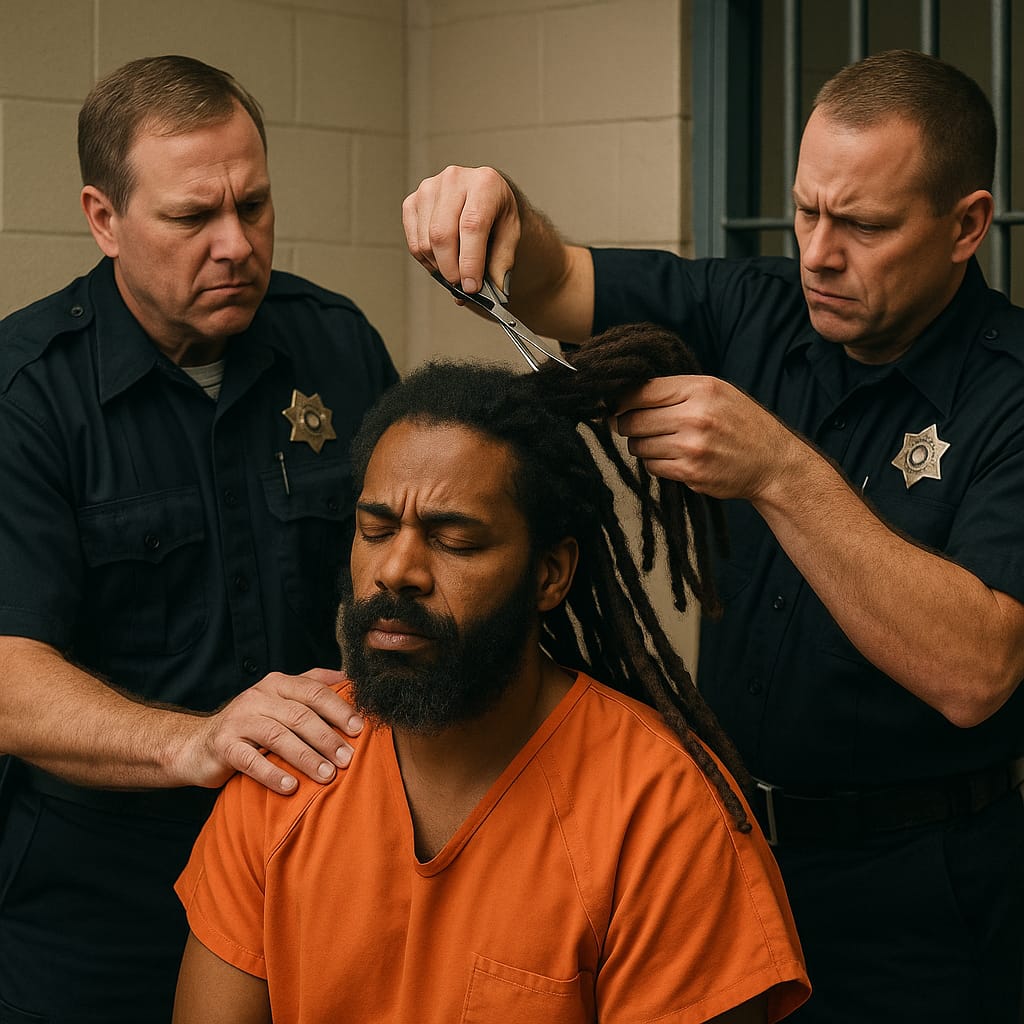

SOURCE CNN- Two things went very wrong when Damon Landor, a devout Rastafarian, was transferred to a prison in central Louisiana five years ago.
The first is that prison guards handcuffed Landor to a chair and shaved off the knee-length dreadlocks he had grown over nearly two decades. The second is that, minutes earlier, guards took a court decision requiring prisons to allow dreadlocks for Rastafarians and tossed it into the trash.
The Supreme Court will hear arguments in an important religious rights case Monday that will decide whether Landor – and other prisoners whose beliefs are violated – may sue prison officials for damages.
“In an instant, they stripped Landor of decades of consistent religious practice and a defining feature of his identity,” his lawyers said in written arguments this year. “That is shocking, offensive, and lawless.”

Few cases arrive at the Supreme Court with a set of facts and a legal question more tailor-made for a conservative 6-3 majority that has in recent years consistently backed religious claims. Even the Louisiana officials opposing Landor’s case have condemned how he was treated.
In a similar case just five years ago, the court ruled 8-0 in favor of a group of Muslim Americans who said federal agents had placed them on a no-fly list because they refused to act as informants.
But the question for the justices is not whether Landor’s head should have been shaved, but rather whether he can claim money damages.
A panel of the 5th US Circuit Court of Appeals ruled that Landor was not entitled to sue under a 25-year-old law intended to protect prisoners’ religious interests.

The conservative New Orleans-based 5th Circuit said that it “emphatically” condemned “the treatment that Landor endured,” but an earlier appeals court precedent settled the case against him. The full 5th Circuit ultimately decided against rehearing the case.
“Religious liberty is deeply important, and Louisiana has laws on the books protecting it,” said Louisiana Attorney General Liz Murrill, a Republican. But, she said, “ten federal courts of appeals have held” that the law “does not allow prisoners to sue prison officials in their personal capacities for damages.”
Landor, who began serving a five-month prison sentence in 2020 for drug possession, had previously taken a promise known as the Nazarite vow to not cut his hair.
He had been incarcerated without incident at two other facilities before he was transferred to the Raymond Laborde Correctional Center with only a few weeks left in his sentence. And he came armed with a copy of an appeals court ruling from 2017 that allowed prisoners to have dreadlocks.
His guards were unpersuaded. The warden asked Landor to hand over documents from his sentencing judge to verify his religious beliefs. When Landor couldn’t immediately produce them, he was escorted into another room, according to court documents, and shaved.
Landor’s prison ID photo taken that day, according to legal papers, shows him bald.
Landor’s case at the Supreme Court rests on the Religious Land Use and Institutionalized Persons Act, or RLUIPA. Congress passed that law, and another that dealt with religious accommodation more widely, in response to a landmark but controversial 1990 precedent from the court. Five years ago, the justices ruled that the other law, which has nearly identical language, does allow people whose religious rights have been burdened to seek damages against government officials acting in their individual capacity.
But Louisiana counters that RLUIPA is a spending contract between the federal government, which provides funding for state prisons, and state officials. The individual officials involved in Landor’s forced shaving were not a party to that contract, Louisiana says, so they can’t be held personally liable.
As much as the current Supreme Court has been receptive to religious claims, it has also been uncomfortable allowing people to sue state officials as a way to enforce federal spending laws.
State officials warned of “serious consequences” if Landor wins, claiming that staffing shortages in state prisons would “only grow worse if current staff and potential job applicants learned that they would be personally liable for money damages.” (States generally pay court-awarded damages against employees in those situations).
Landor and his allies counter in court papers that without being able to sue for damages there’s no real way to enforce the federal law, and no consequences for those who violate it.
President Donald Trump’s administration is backing Landor’s claim, telling the Supreme Court that it believes he should be able to sue.
That is a departure from the position the first Trump administration took five years ago in a related case, though the administration has noted it lost the case five years ago.
Landor, who declined an interview request, will attend the Supreme Court arguments in person.
As his case has worked its way up to the high court, his dreadlocks have regrown to just past his shoulders.
CNN’s Devan Cole contributed to this report.
Advertise with the mоѕt vіѕіtеd nеwѕ ѕіtе іn Antigua!
We offer fully customizable and flexible digital marketing packages.
Contact us at [email protected]













